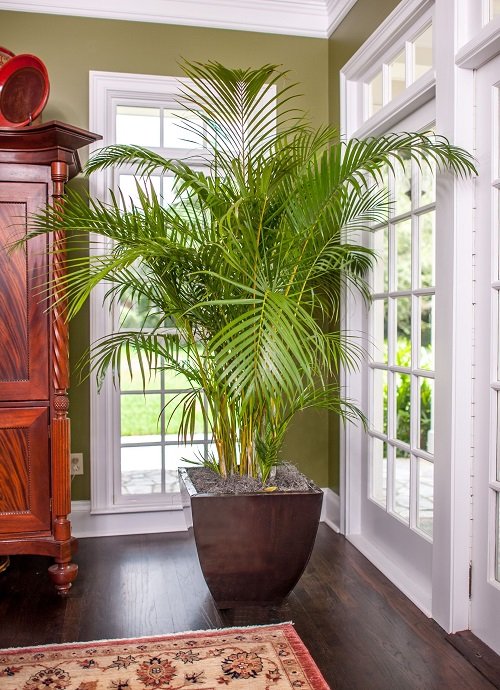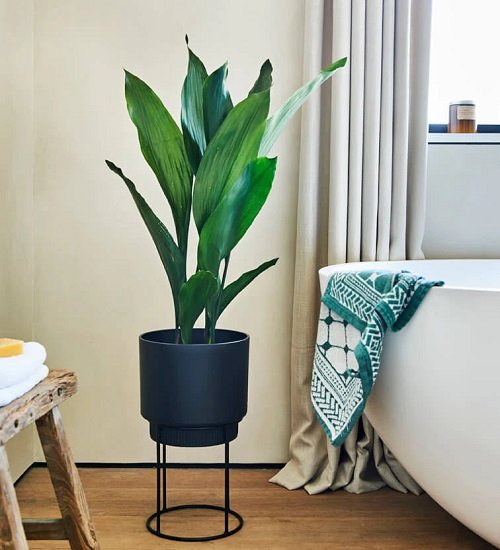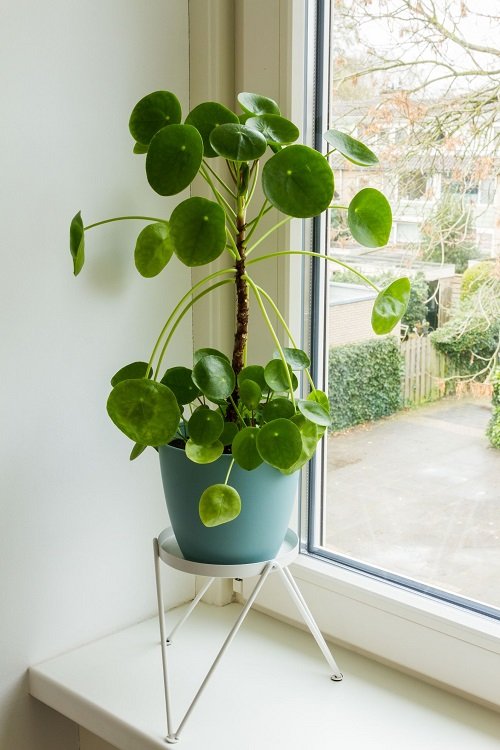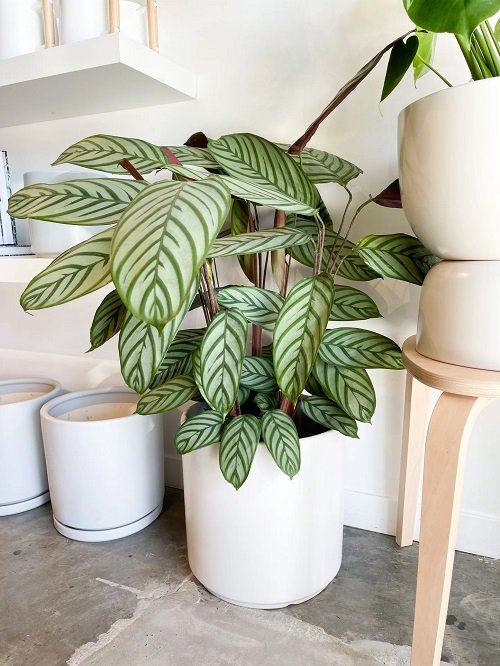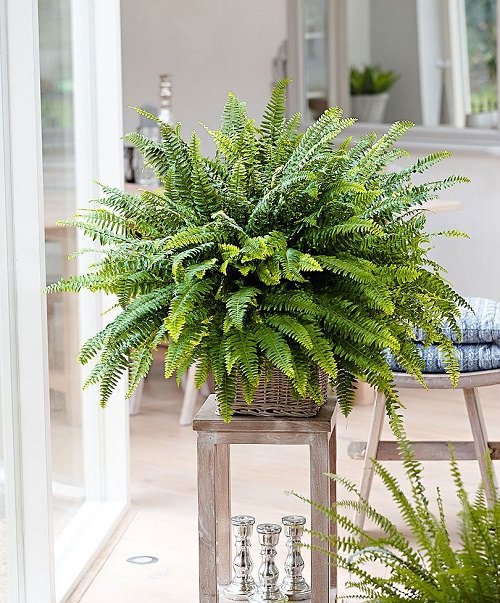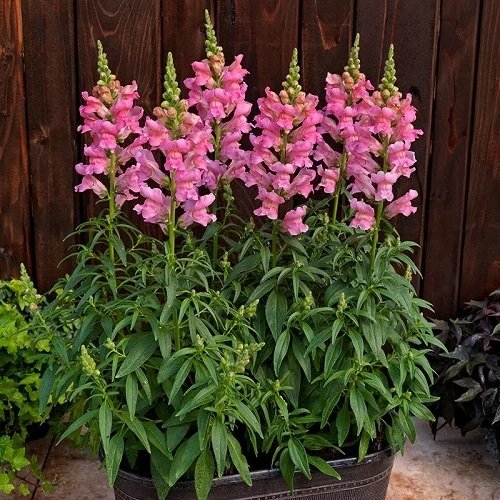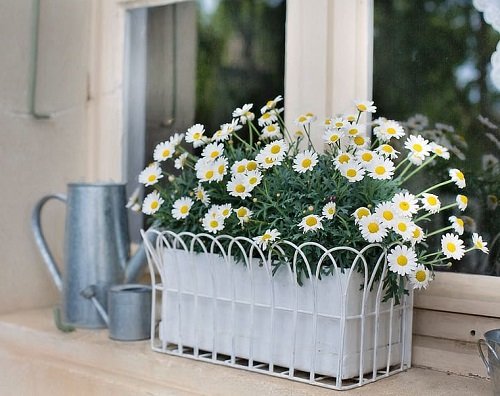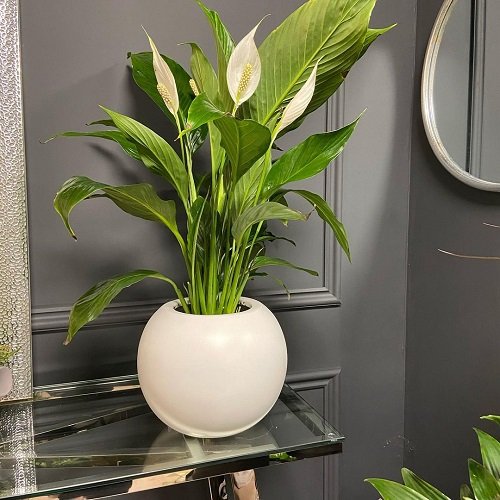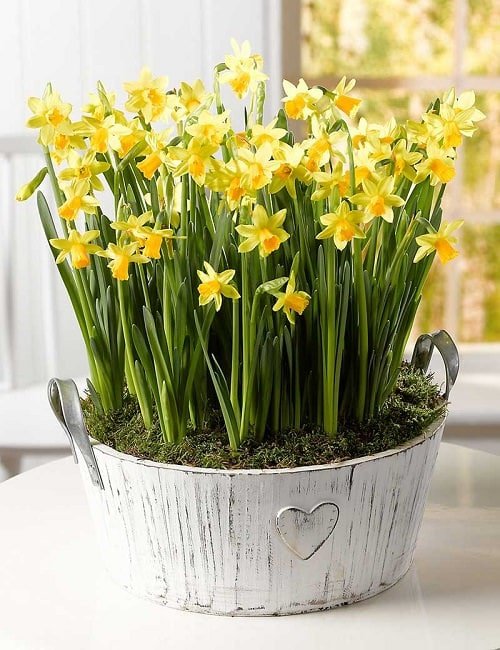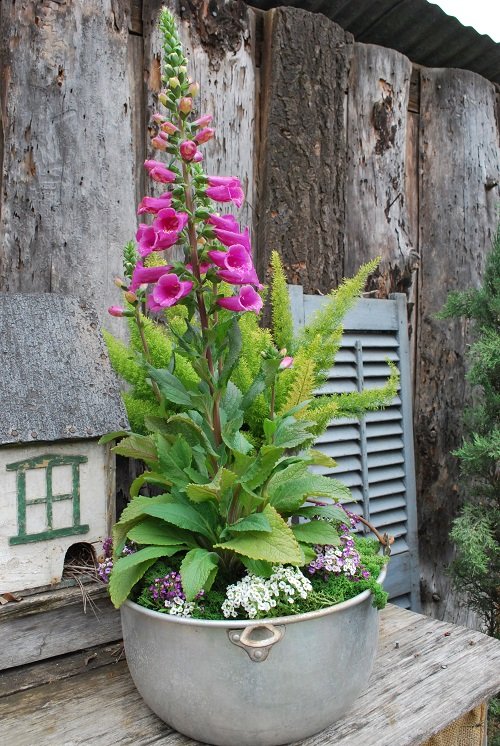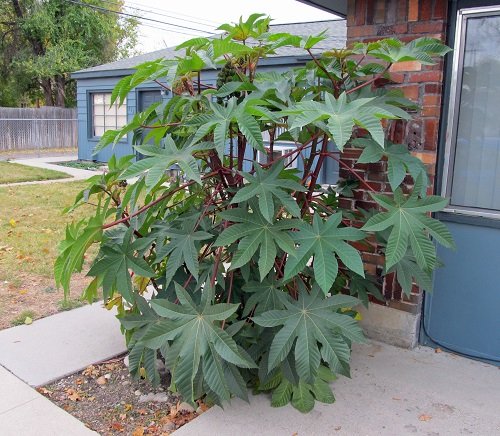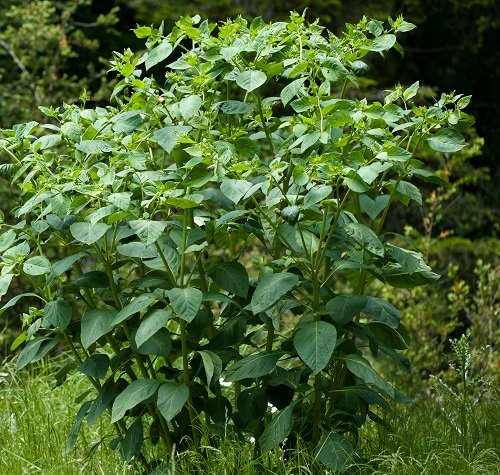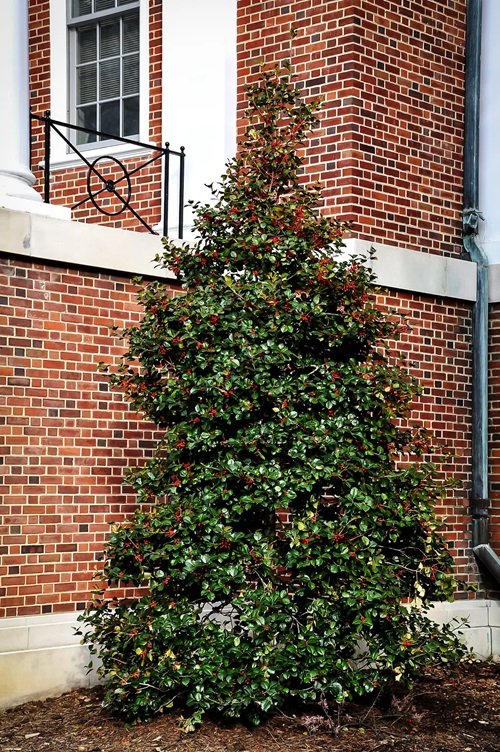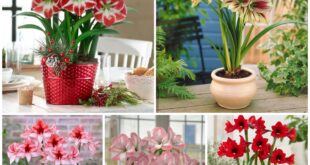This exclusive list of the best and worst kid-friendly plants will help you choose the best plant for a home and garden with a child!
Before adding a plant to your home, it is important to check whether it is safe for your children or not. With this in mind, we have divided the list into indoor and outdoor plants, keeping in the corner those that can cause stomach problems in children or harm them due to their thorny or pointed leaves. Those with colorful flowers and eye-catching foliage that might attract the kids won the spot in the “safe” zone!
Kid-friendly indoor plants
1. Areca palm
Botanical name: Dypsis lutescens
Areca palm adds a touch of tropical elegance to any room. Its slender, arched leaves are visually appealing and child-friendly, with no known toxicity issues.
2. Christmas cactus
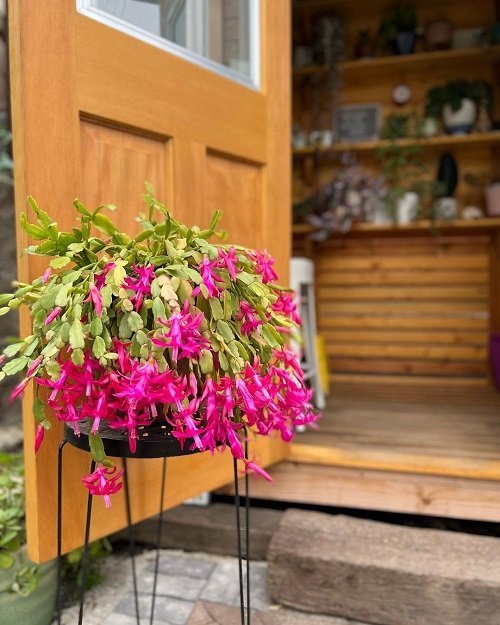
Botanical name: Schlumbergera
These kid-friendly plants are a joy to look at, especially when they bloom in all their bloom during the festive season! The Christmas cactus is something you simply cannot miss!
3. Peperomia
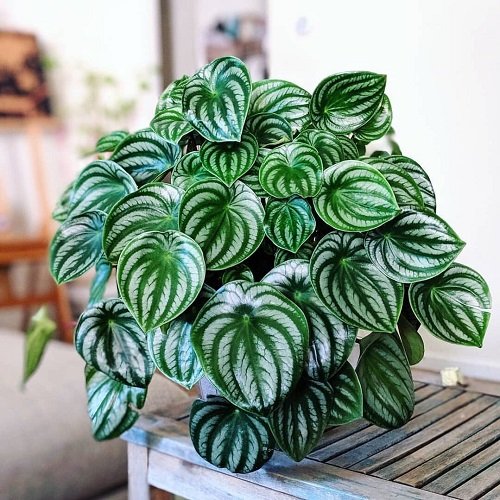
Peperomias features a diverse range of leaf shapes and textures, making them an intriguing choice for homes with children.
4. Rubber plant
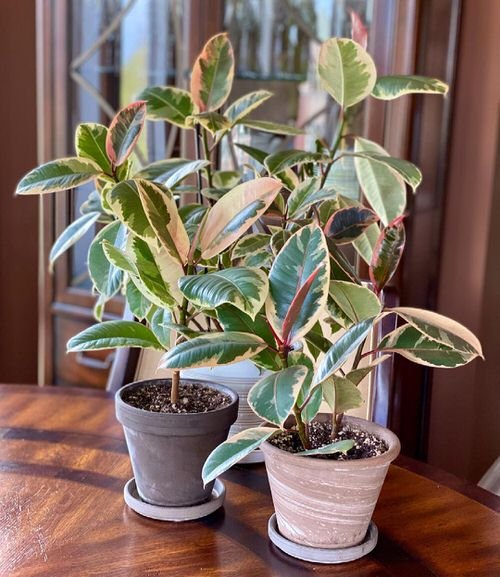
Botanical name: Ficus elastica
The robust and shiny leaves of the Rubber tree Make it an eye-catching addition to any room. Aside from its aesthetic appeal, this plant is also kid-friendly.
5. Baby tears
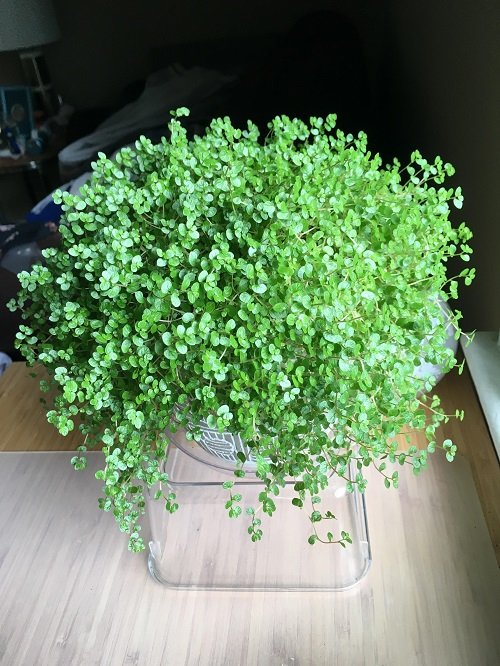
Botanical name: Soleirolia soleirolii
Delicate and lush, these kid-friendly plants form a dense carpet of tiny leaves that create a soft and inviting look. It is non-toxic. 100%!
6. Nerve plant
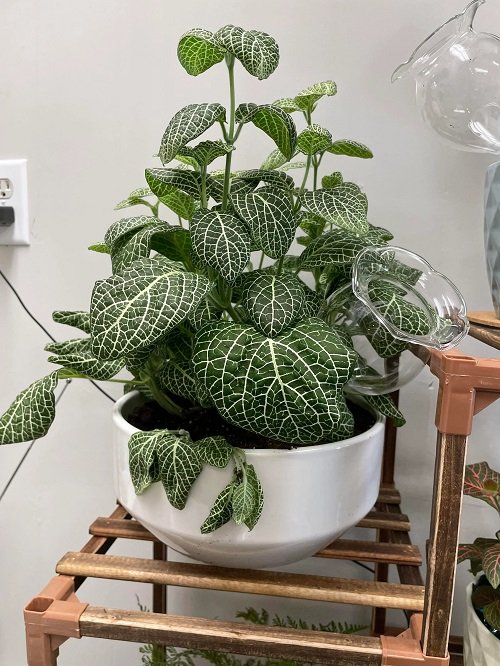
Botanical name: Fittonia
The strongly veined leaves of the Nerve plants Add a touch of color to interiors. Aside from its visual appeal, it is also a good choice for a child’s room as it is non-toxic.
7. Parlor palm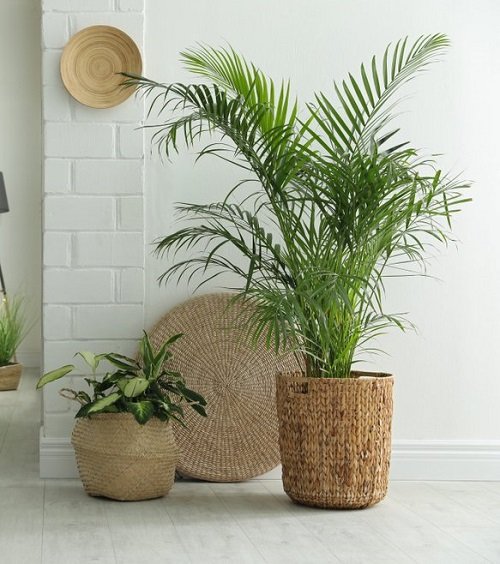
Botanical name: Chamaedorea elegans
The arched fronds of the parlor palm add a touch of the tropics to your living space. It is an easy-care plant that adds a subtle, natural element to any room.
8. Cast iron factory
Botanical name: Aspidistra elatior
With its sturdy, dark green leaves, this kid-friendly plant has earned its name for its indestructibility! Cast iron plants thrive even in poor lighting conditions!
9. Chinese money plant
Botanical name: Pilea peperomioides
The Chinese money plant can be recognized by its unique coin-like leaves and adds a unique charm to any environment. It is an excellent choice for households with children!
10. Calathea
Calatheas are known for their striking and intricate patterns on their leaves. Aside from their visual appeal, these plants are also safe for children as they are non-toxic.
11. Boston fern
Botanical name: Nephrolepis exaltata
Boston ferns are characterized by their feathery, lush fronds that bring a touch of nature indoors. They prefer moist conditions.
12. Spider plants
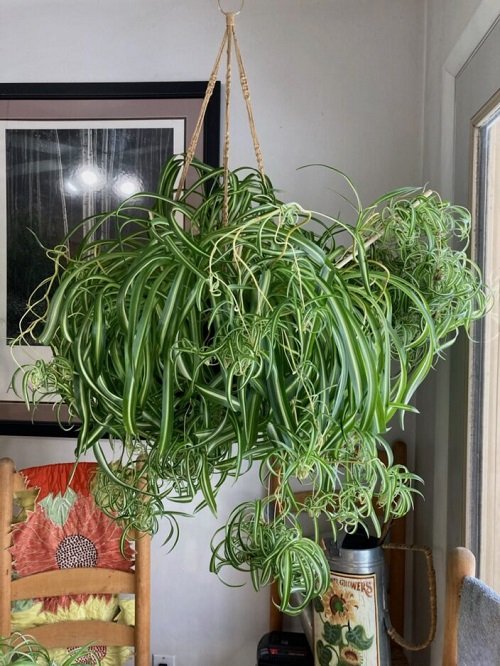
These are the safest and probably most popular choice that you cannot ignore for a child’s room! If you grow them in a hanging basket, their leaves look spectacular. Don’t worry even if your little one nibbles on it! It’s super safe!
Kid-friendly outdoor plants
13. Sunflowers
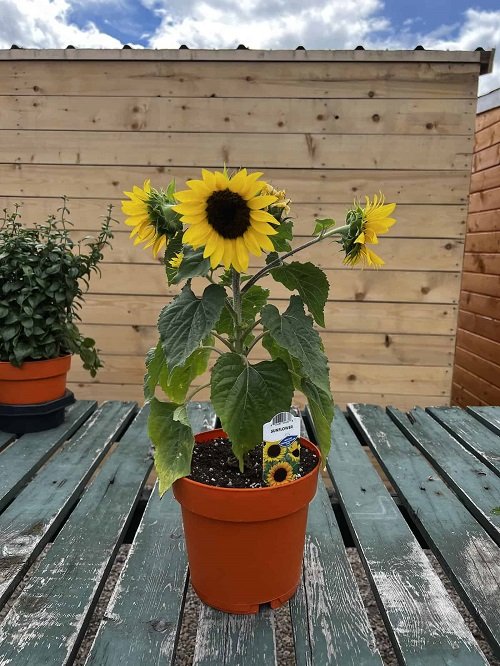
Botanical name: Helianthus annuus
sunflowers are a beacon of cheer in any garden with their towering stems and bright golden petals. They are also great for attracting pollinators.
14. Marigolds
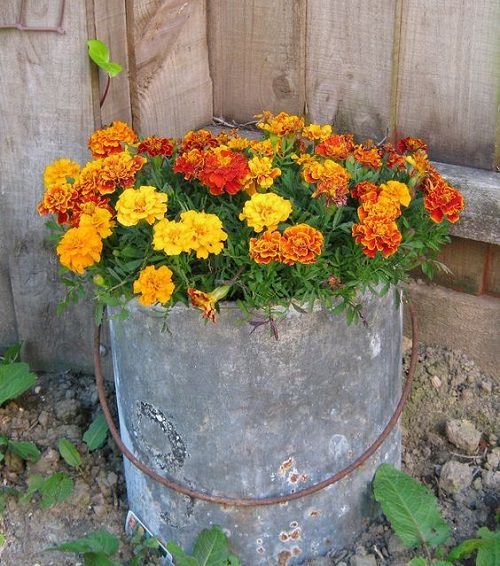
Botanical name: marigolds
Marigolds provide a splash of color outdoors with their compact flowers in shades of orange and yellow. Because they are non-toxic and child-friendly, they provide a safe environment for curious children.
15. Nasturtium
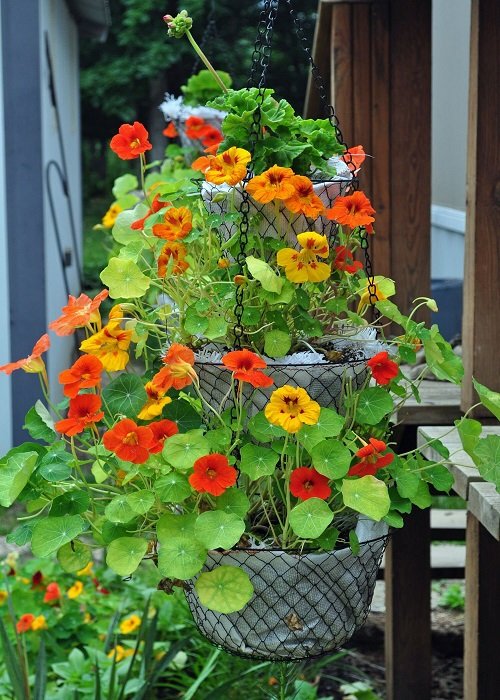
Botanical name: Tropaeolum majus
The round leaves and bright flowers of these kid-friendly plants are not only beautiful to look at, but also edible!
16. Lavender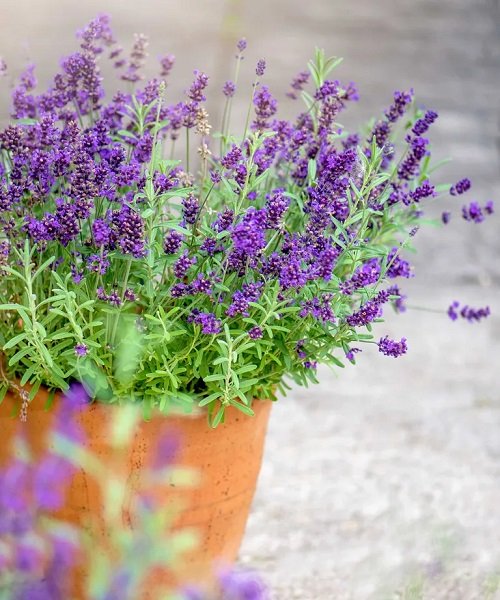
Botanical name: Lavandula
lavender shows fragrant, purple inflorescences. They offer sensual pleasure and are safe for little ones.
17. Zinnias
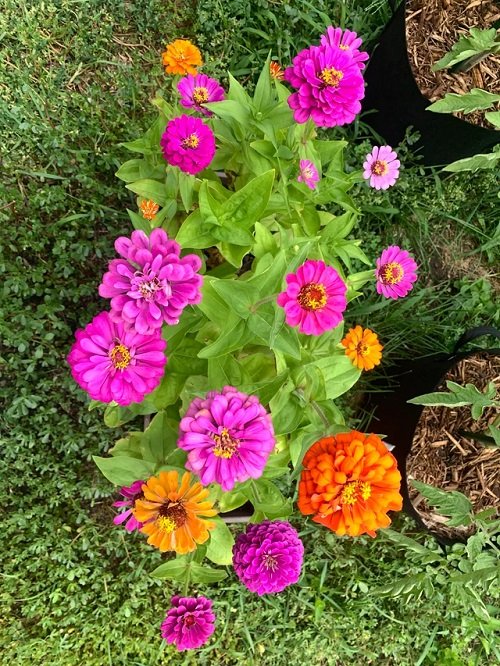
Botanical name: Zinnia elegans
The bright petals of zinnia Bring a playful charm to your outdoor space. Due to their non-toxic nature, these flowers are kid-friendly and a must-have on balconies and patios.
18. Snapdragons
Botanical name: Antirrhinum
Snapdragons are super safe for kids and a real eye-catcher thanks to the tall spikes of their flowers, which come in a variety of colors!
19. Daisies
Botanical name: Bellis perennis
Daisies’ charming white petals and yellow centers are a classic in child-friendly gardens. Safe and easy to grow, a must!
20. Chamomile
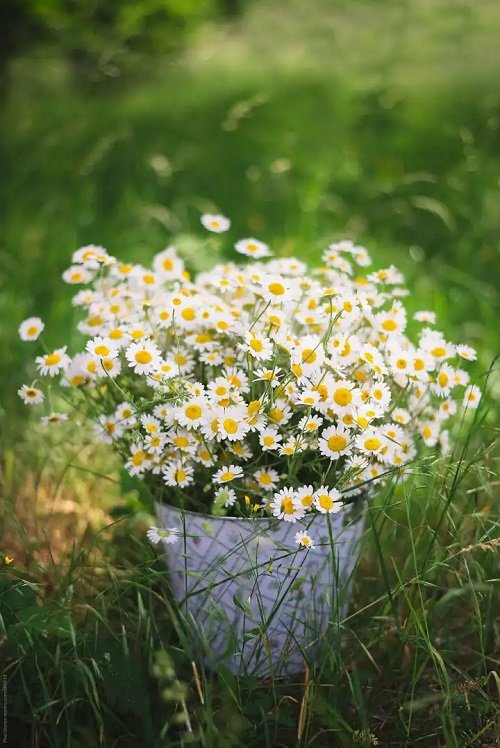
Botanical name: Matricaria chamomilla
Chamomile’s delicate and daisy-like flowers can be a calming addition to outdoor spaces. It introduces young people to the concept of using plants for relaxation and well-being.
21. Chrysanthemums
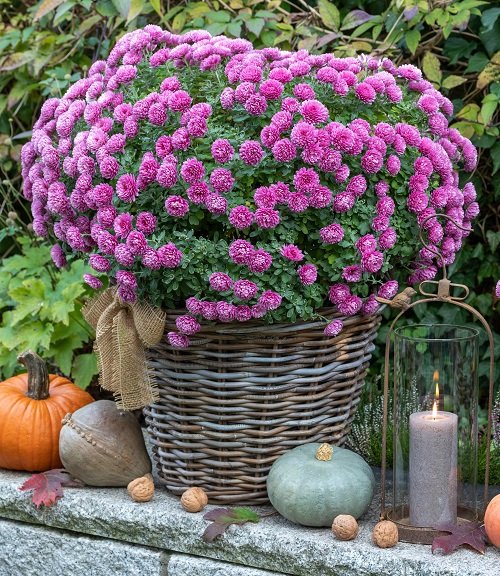
Botanical name: Chrysanthemum
Chrysanthemums Bring a touch of autumnal beauty to your gardens. With them you can be completely worry-free around your children.
Unsafe houseplants for children
22. Dieffenbachia
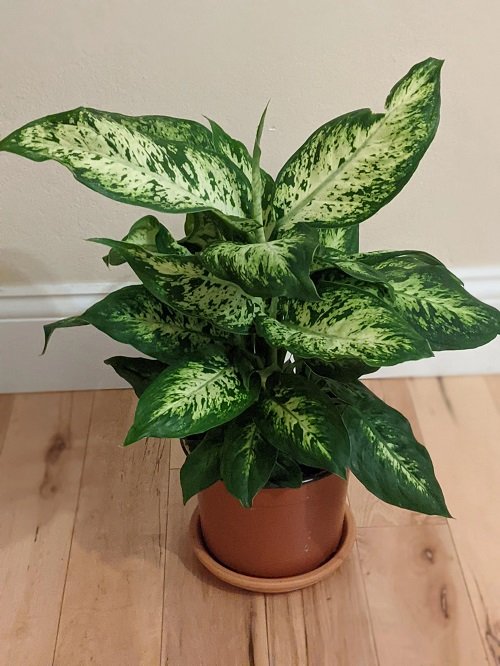
Botanical name: Dieffenbachia spp.
Dieffenbachia contains toxic compounds that may cause irritation and swelling if ingested. It is best to keep this plant out of the reach of children and pets.
23. Peace Lily
Botanical name: Spathiphyllum
Despite her elegant appearance Peace lilies contain compounds that may cause mild toxicity when ingested. To ensure a safe environment for children and keep them out of reach.
24. Aloe Vera
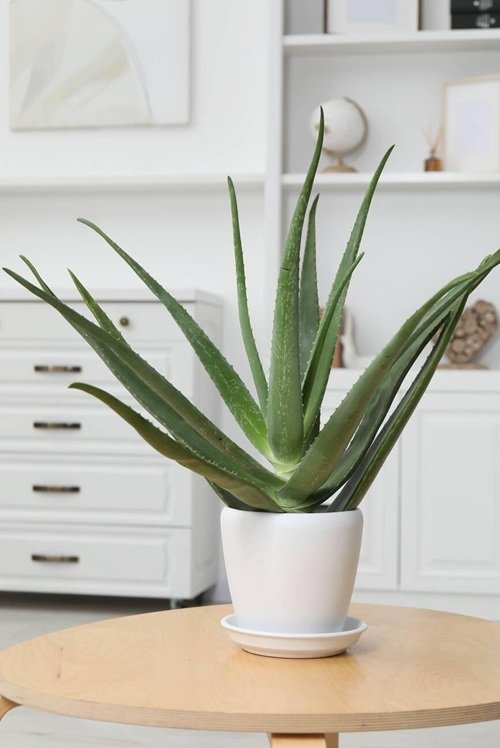
Botanical name: Aloe barbadensis miller
Aloe veraPopular for its soothing gel, the plant is safe for children, but its pointed leaves can be dangerous and cause eye injuries. It’s best to keep them away.
25. Sago palm
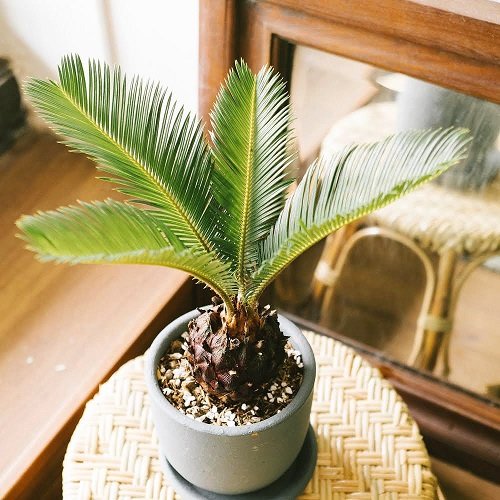
Botanical name:Cycas revoluta
The sago palm is a popular ornamental plant, but contains toxins that can be harmful if consumed. So if you have a child who has a habit of nibbling things, it’s not safe!
26. Daffodils
Botanical name: Narcissus
Daffodils are popular for their trumpet-like flowers in a variety of hues that herald spring. However, nibbling their leaves or flowers can cause stomach problems as it is poisonous.
Outdoor plants are not safe for children
27. Oleander
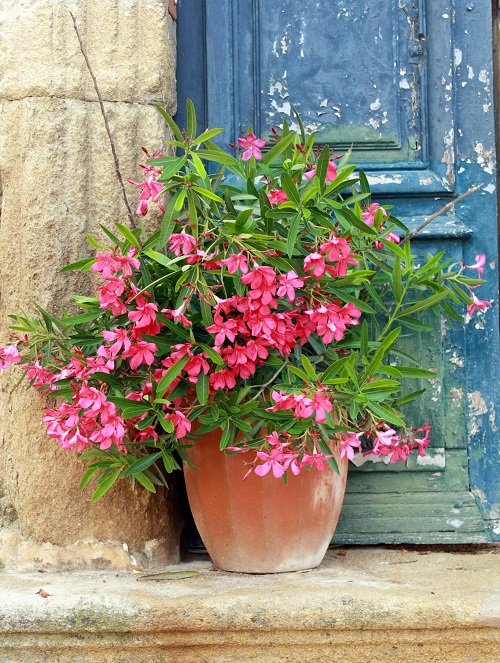
Botanical name: Nerium oleander
The danger of oleander lies in the milky sap, which contains toxic compounds, including Oleandrin and nerioside. Consuming any part of the plant can cause serious poisoning.
28. Foxglove
Botanical name: Digitalis purpurea
Despite their visual appeal, all parts of the plant contain digitalis glycosides, which can lead to cardiac arrhythmias if ingested.
29. Castor bean plant
Botanical name: Ricinus communis
The castor bean plant can be an eye-catching addition to gardens with its large, palmate leaves. However, its seeds contain ricin, a powerful poison that can be fatal if ingested.
30. Deadly Nightshade
Botanical name: Atropa belladonna
Belladonna may seem seductive, but it poses extreme dangers. The plant contains tropane alkaloids, which if consumed can cause symptoms ranging from hallucinations to coma.
31. Autumn crocus
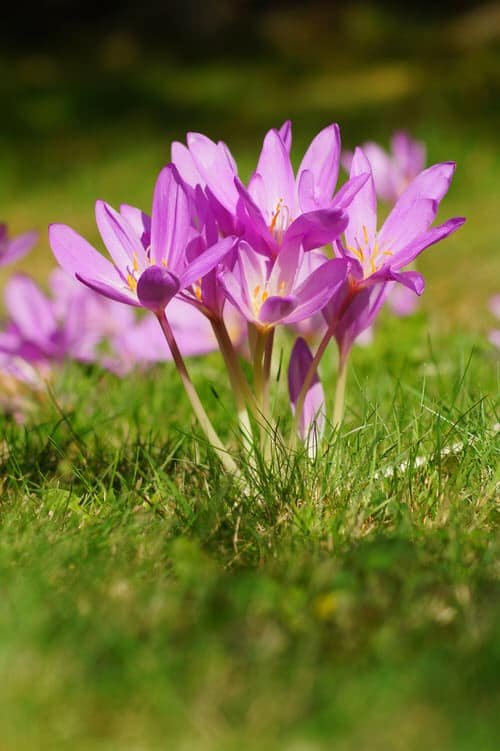
Botanical name: Colchicum Autumnale
The autumn crocus surprises with its bright, fall-blooming flowers, but its beauty hides a dangerous reality. The plant contains colchicine, a highly toxic compound that can cause severe gastrointestinal distress and organ failure.
32. Holly
Botanical name: Ilex spp.
Holly bushes look beautiful with glossy evergreen leaves, but their berries contain substances that can cause stomach upset if eaten. They can also pose a choking hazard to small children.
33. Azalea
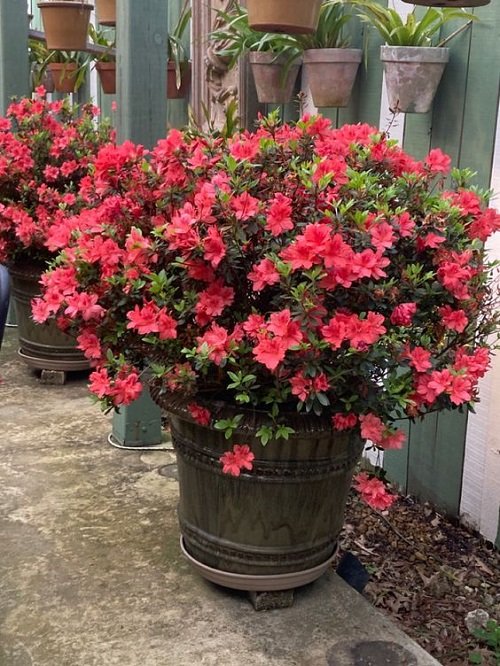
Botanical name: Rhododendron spp.
Azaleas contain grayanotoxins, which can cause nausea, vomiting and dizziness when consumed. Although serious poisoning is rare, the potential risk, especially to curious children, makes these flowers less ideal for outdoor settings where safety is a top priority.
34. Agave
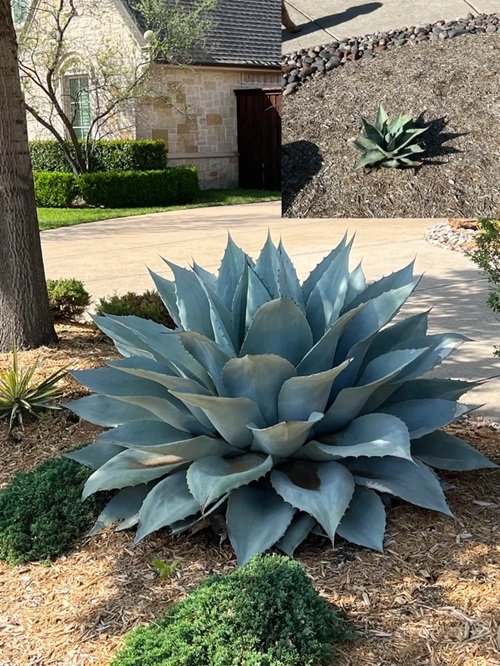
Well, the plant looks pretty stunning, especially with those long and fleshy leaves (and flowers when they grow), but the very thing that makes it beautiful makes the plant unsafe for children – the pointy foliage that can cause serious injury Children.
 careyfashion.com Carey Fashion
careyfashion.com Carey Fashion
